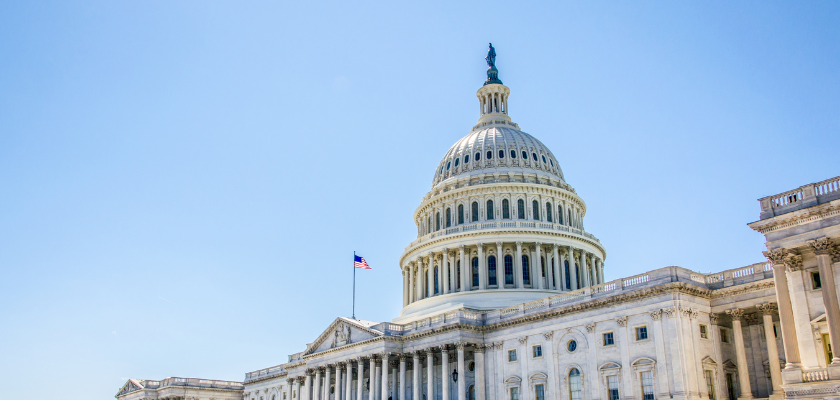News
Medicare Improves SUD Coverage in 2025, but Critical Gaps Remain

July 30, 2024 - Just after Independence Day, the Centers for Medicare and Medicaid Services (CMS) issued the calendar year 2025 Medicare Physician Fee Schedule (MPFS) proposed rule. This proposed rule builds on previous coverage expansions of the substance use disorder (SUD) care continuum by CMS. However, extensive coverage gaps remain.
Currently, Medicare covers some, but not all the ASAM Levels of Care. That is, Medicare covers ASAM Levels 1 (outpatient), Level 2 (intensive outpatient (IOP)/high-intensity outpatient), and Level 4 (inpatient). Notably, Medicare currently does not cover ASAM Level 3 (residential) and has restrictions on the settings where it covers Level 2. Specifically, Medicare will cover IOP services furnished by opioid treatment programs (OTPs), community mental health centers (CMHCs), hospitals, Federally Qualified Health Centers (FQHCs), and Rural Health Clinics (RHCs) per the Consolidated Appropriations Act (CAA) of 2023. The Medicare IOP benefit is not covered if furnished and billed outside of these settings.
In the outpatient setting, Medicare has two separate coverage benefits for SUD treatment. The first is the that pays for care coordination, psychotherapy, counseling, and overall patient management for the treatment of a SUD in non-OTP outpatient settings. Clinicians may bill Medicare separately for evaluation and management (E/M) and other services that are not included in the monthly bundle. The second is an that covers treatment provided to a Medicare beneficiary in an OTP with an opioid use disorder (OUD). Limited by statute, OTPs may not bill Medicare for care provided for the treatment of any SUD other than OUD.
The 2025 proposed MPFS proposes certain policy changes and some newly covered services that will enhance the care continuum. Even if these changes are finalized by CMS, an entire Level of Care (Level 3.0) will remain uncovered.
Here are the key proposals impacting clinicians in Addiction Medicine:
- New codes proposed to describe both the coordination of community-based services provided to individuals in a crisis and the services provided post-discharge for a crisis encounter;
- New payment for digital mental health (SUD?) treatment;
- New consultation services for clinicians who cannot independently bill E/M services;
- A range of updates to the OTP benefit;
- Revision of the broad Medicare “custody” exclusion; and
- Extension of mental health telehealth coverage in FQHCs/RHCs and a delay of the in-person mental health visit requirements until 2026.
CMS is also seeking comments on a variety of issues, including information on:
- IOP services provided to patients in free-standing substance use disorder (SUD) treatment facilities;
- Referrals to community-based organizations (CBOs) that address unmet health-related social needs, provide harm reduction services, and/or provide recovery support services;
- The newly implemented community health integration (CHI) services, principal illness navigation (PIN) services, and social determinants of health (SDOH) risk assessments to engage interested parties on additional policy refinements for CMS to consider in future rulemaking; and
- A range of information requests regarding individuals in the custody of penal authorities.
ASAM Analysis
Crisis Services
Medicare covers and pays for services furnished for . CMS heard from stakeholders that while this important service was covered, the time spent by clinicians connecting patients to community-based providers to help resolve the crisis and time spent establishing a safety plan with family members and others – was not covered. Additionally, time spent by the clinician performing follow-up after a hospital discharge for a behavioral health crisis was not covered. Hence, CMS is proposing a new code for safety planning interventions and post-discharge telephonic follow-up to augment existing coverage and payment for psychotherapy for crisis. Notably, the new HCPCS G codes may be recognized by private carriers, but ASAM members should not expect carriers other than Medicare to recognize these new codes.
Digital Mental Health Treatment
CMS is also proposing to cover digital therapeutics for the first time, but only for those that are [Food and Drug Administration] FDA-approved to treat a mental health condition. Under this proposal, Medicare would cover the supply of the device (if the clinician is furnishing it), as well as the time spent by the clinician reviewing the data collected by the device. While there are several products cleared by the FDA for behavioral health, CMS appears to be limiting these codes to devices cleared to treat mental-health specific conditions. The rule does not provide clarification on whether FDA-approved devices to treat SUD could be used and billed for under these codes. Again, the new HCPCS G codes may be recognized by private carriers, but ASAM members should not expect carriers other than Medicare to recognize these new codes.
Interprofessional Consultation Services
Clinical psychologists, clinical social workers, marriage/family therapists, and mental health (and addiction) counselors will now be able to bill for interprofessional consultations either to other professionals limited to billing for mental health services, or to clinicians who can independently bill E/M services if CMS finalizes the current proposal. Currently, these professionals are limited to billing for mental health visits and cannot independently bill Medicare for E/M visits. Physicians, advance nurse practitioners, and physician assistants should continue to bill CPT codes 99446, 99447, 99448, 99449, 99451, or 99452 for interprofessional consultations. As noted above, the new HCPCS G codes may be recognized by private carriers, but ASAM members should not expect carriers other than Medicare to recognize these new codes.
OTP Services
CMS is proposing a range of changes to the Medicare OTP benefit. First, CMS is proposing to allow methadone treatment initiation via telehealth. This flexibility does NOT include audio-only. Additionally, Medicare is aiming to permanently allow periodic assessments in OTPs to be furnished via audio-only technology beginning in 2025. CMS will also incorporate social determinants of health (SDOH) risk assessments into the OTP intake bundled code (G2076), thus increasing the national payment rate for G2076 from $201.73 to $220.39. Under the 2025 proposed MPFS, Medicare plans to also update OTP payment rates to include payment for Brixadi and Opvee. Finally, when billing for OTP services, Medicare is poised to now require clinicians to include an OUD diagnosis on the claim form for payment to be made to the OTP. OTPs are barred by federal statute for billing Medicare for any SUD treatment service other than OUD.
Telehealth
Although there are a range of telehealth proposals listed in the proposed rule, it is important to note that due to changes in federal law made by the SUPPORT Act of 2018, services that can be provided via telehealth for the treatment of a SUD (or a co-occurring mental health disorder) are not impacted and will remain covered by Medicare in 2025 and moving forward.
However, beginning in 2025, services furnished on or after January 1, 2025, for the purposes of diagnosis, evaluation, and/or treatment of a mental health disorder will require the patient to be seen in-person at least 6 months before and at least 6 months after the telehealth service.
FQHCs/RHCs will continue to be able to use telehealth for mental health visits through 2025. Medicare is poised to resume the in-person telehealth requirement for mental health services in 2026 if CMS finalizes this rule, absent Congressional action.
Importantly, this rule does not address the permanent flexibility to use telemedicine to prescribe buprenorphine for the treatment of OUD. That is poised to be addressed by the Drug Enforcement Administration (DEA) later this year.
Safety Planning Interventions and Post-Discharge Follow-ups
In the proposed rule, CMS notes that while some clinicians provide patients with a personalized list of coping strategies and sources of support that a patient can use in the event of a behavioral health crisis, the practice is not universal. CMS adds “that the risk of suicide among people with a SUD who also are at high risk for or may have experienced an intentional overdose is not well recognized.” Hence, Medicare is proposing to establish a new code to describe assisting the patient with identifying a personalized safety plan. CMS is proposing to allow the code to be billed with an E/M visit or psychotherapy.
Separately, CMS plans to add a new monthly billing code to describe the specific protocols involved in furnishing post-discharge follow-up contacts that are performed in conjunction with a discharge from the emergency department for a crisis encounter, as a bundled service describing four calls in a month, each lasting between 10-20 minutes. As with other HCPCS G codes, these codes may be recognized by private carriers, but ASAM members should not expect carriers other than Medicare to recognize them.
Custody Exclusion Removal
Although not listed in the MPFS, CMS proposes under the hospital outpatient proposed rule to revise the Medicare custody exclusion so that Medicare may make payment for services to individuals while on bail, parole, probation, or home detention, provided the individual has a legal obligation to pay for such items or services. The “legal obligation to pay” means that if the individual does not have a legal obligation to pay for a healthcare service (i.e. they are getting free SUD counseling or other services), then Medicare would still not pay. Under the proposed changes, a person residing in a mental health facility would only be considered “in custody” and thus ineligible for Medicare payment of services if they are required to reside there under a penal statute or rule.
CMS is seeking feedback on whether the rule should explicitly state that individuals on bail, parole, probation, or home confinement are not considered to be in custody. The agency is also seeking feedback on whether private contractors who operate penal settings should be included in the definition of “penal authority” for the purposes of defining who is in the custody of a “penal authority.”
Relatedly, CMS is proposing to consider an individual in custody of a penal authority if they are required to reside in a halfway house under any of the following circumstances:
- They are precluded from working outside the facility in employment that is available to individuals who are not under penal authority supervision;
- They may not use community resources (for example, libraries, grocery stores, recreation, or educational institutions) at will; or
- They may not seek health care items and services in the broader community to the same or similar extent as individuals who are not under penal authority supervision.
If a resident of a halfway house does not meet any of those circumstances, Medicare could pay for their healthcare services. However, if there’s no obligation to pay as noted earlier (they are receiving free services), then Medicare would not make payment.
Finally, CMS is proposing changes to the special enrollment period to accommodate these changes, if finalized.
ASAM continues to examine the impact of this rule on Addiction Medicine and will prepare detailed comments of submission to CMS by the 5 pm deadline on September 9, 2024.
You can find ASAM’s in-depth summary of the 2025 MPFS . A PDF version of this post is available .
If you have any questions, concerns, or would like to provide input, please contact Corey Barton, Director of Advocacy at cbarton@asam.org.







